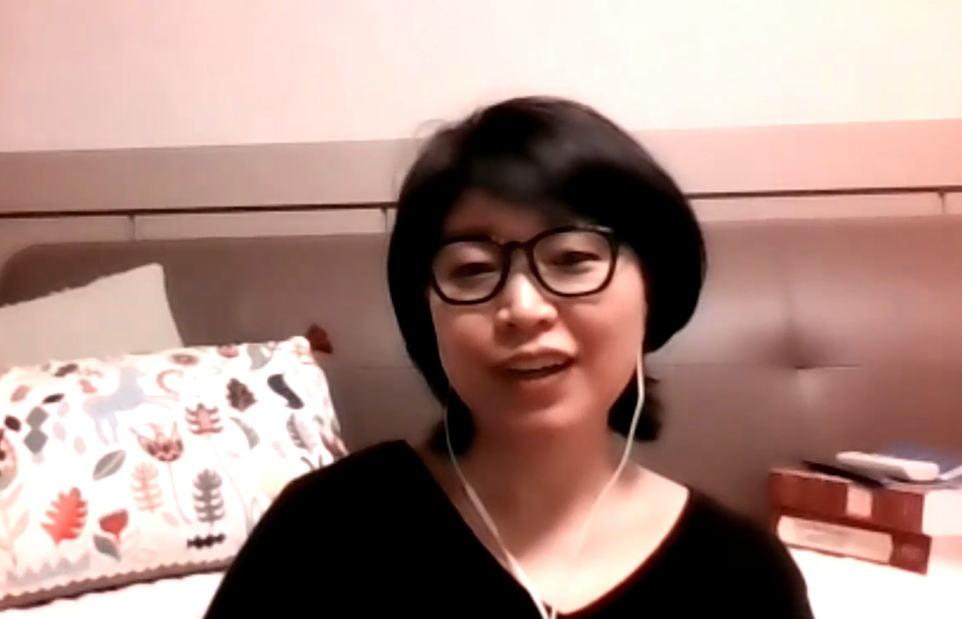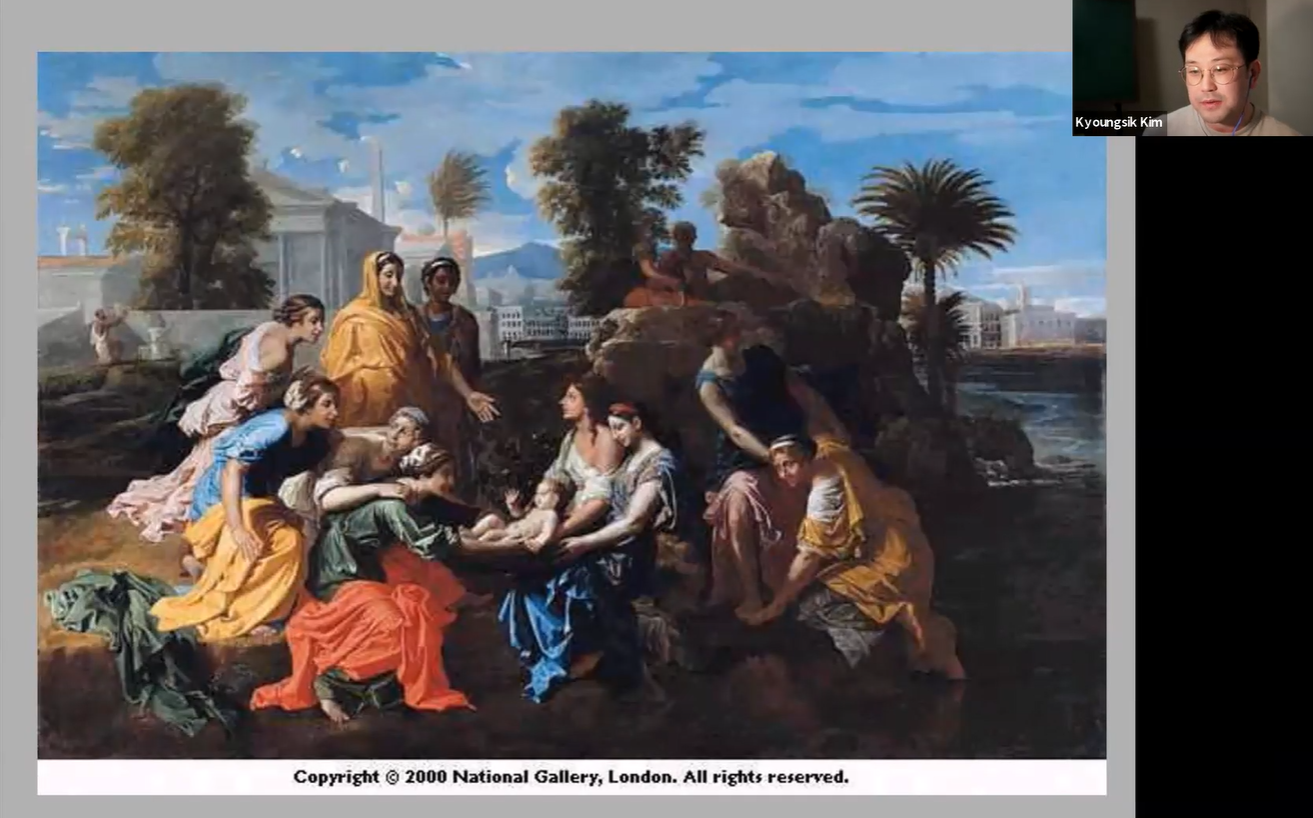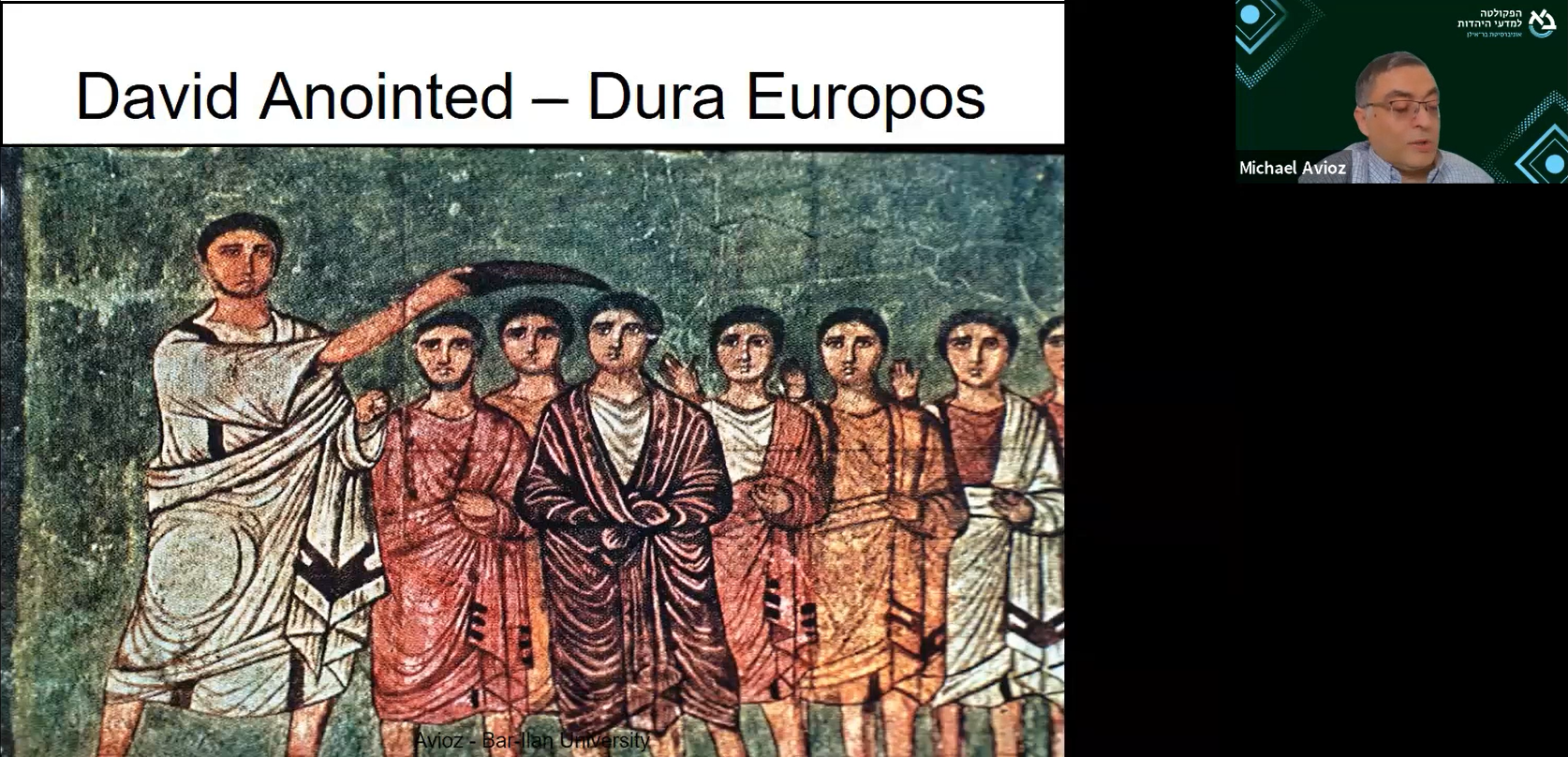 Dr. ShinAe Kim, Adjunct Professor at the Methodist Theological University in Seoul, South Korea, hosted a special three-part Bible Studies lecture series in collaboration with Bar-Ilan University’s Bible Department and the International School last month.
Dr. ShinAe Kim, Adjunct Professor at the Methodist Theological University in Seoul, South Korea, hosted a special three-part Bible Studies lecture series in collaboration with Bar-Ilan University’s Bible Department and the International School last month.
Dr. Kim is one of Bar-Ilan University’s successful alumni who earned her doctorate in Biblical Studies in 2015.
A summary of each lecture has been provided by Dr. Kim and her colleague, Dr. Kyung Sick Kim. The lectures were in English with simultaneous translation into Korean. A link to each recording is below the summary.
Prof. Ed Greenstein, “Job, A New Translation”
Translated and reported by Dr. ShinAe Kim
Prof. Ed Greenstein presented a new perspective on the Book of Job. In this presentation, he showed that Job was defiant of God until the end. The book is more about speaking truth to power than the problem of unjust suffering.
The nature of the debate between Job and his companions: between tradition (the companions) and experience (including revelation – for Job) shows that wisdom is less about what you have learned from your elders and teachers and more about what you learn through your own experience and observation. Job parodies traditional wisdom.
 Although the topic of the discussion between Job and his companions is the question of just retribution (whether the good are rewarded and the bad are punished), the theme of the book is honesty in talking about God. The most radical moment in the book is near the end when the deity approves of Job’s discourse rather than the friends’ because he spoke nekhona (“honestly,” “sincerely”) based on true belief rather than dogma.
Although the topic of the discussion between Job and his companions is the question of just retribution (whether the good are rewarded and the bad are punished), the theme of the book is honesty in talking about God. The most radical moment in the book is near the end when the deity approves of Job’s discourse rather than the friends’ because he spoke nekhona (“honestly,” “sincerely”) based on true belief rather than dogma.
The God that Job perceives is concerned with power and control of the created world far more than with maintaining justice. Accordingly, in Job’s last utterance (42:6), he expresses his great disappointment in the nature of God, feeling sorry for humanity, who are not as important to God as Job would have hoped.
Prof. Greenstein’s new translation of the Book of Job, especially of Job 42:6 was shocking to the 75-strong audience who had always read the verse using the traditional interpretation, which sees Job as a ‘repenter’.
The discussion after the lecture showed that participants (students and lecturers) were amazed and many were speechless. Reading the Bible from a Jewish perspective is not familiar to traditional Christians, yet because of this lecture, many participants felt it is very necessary to do this.
Watch the recording of this lecture here.
Prof. Joshua Berman, “The Story of Pharaoh’s Daughter (Exod 2:1-10) in Text and in Art”
Translated and reported by Dr. Kyung Sick Kim
In his lecture, Prof. Berman stressed the importance of a close reading of the text. Reading word-for-word from Exodus 2:1-10, which delivers the story of Moses’ birth and his rescue by Pharaoh’s daughter, Berman presented the plentiful messages and intuitions implied in the biblical text. For example, from the detailed descriptions of making an ark, the reader comes to feel the mother’s complicated emotions toward her baby. Furthermore, Berman showed the value of the artistic approach to the Hebrew Bible as an interpretative tool, which reveals the hidden elements in the written text.

After the lecture, participants asked a variety of questions. One participant asked why Moses was laid by the riverside? Berman responded by saying that the riverside, in ancient times, was a place like the entrance to an emergency room. There were always many people by the riverside and abandoned babies would sometimes be laid there. In this discussion, participants realized the importance of understanding the ancient customs and culture when interpreting the Hebrew Bible.

Dr. Kyung Sick Kim translating for Prof. Berman
Overall, Prof. Berman’s lecture went well and participants’ feedback showed that it was a good time to learn a new methodology, which promoted a close and slow reading of the Bible. Participants who attended this lecture included 35 students and pastors.
Watch the recording of this lecture here.
Michael Avioz, “Josephus’ Interpretation of the Bible”
Translated and reported by Dr. ShinAe Kim
Prof. Avioz’s goal was to show that Josephus, along with being a historian and a military commander, was also an interpreter of sacred writings, who had a remarkable interpretive intuition.
In his lecture, Prof. Avioz used examples to reveal the interpretive strategies that Josephus used to make the biblical text clearer to his potential readers, whose mother tongue was Greek. We could see that to achieve this goal, Josephus added, changed, and omitted certain details from the biblical text.
But still, some questions remained unanswered: Is it possible to learn from the changes Josephus makes to biblical stories about his own tendencies, such as justifying his behavior toward the Romans; his position in the revolt against the Romans; his hatred of Israel; and other different controversies? Was Josephus’ intended audience Jewish or gentile?

About 30 people attended each lecture, which was very well received and welcomed by participants.
Overall, the lecture series was enjoyed by all participants – students and pastors alike – and the discussions brought up some interesting questions and answers. Everyone involved expressed a wish to have further lectures in the future.
Watch the recording of this lecture here.
Contact Us for More Info
Leave your details and we’ll get back to you soon

